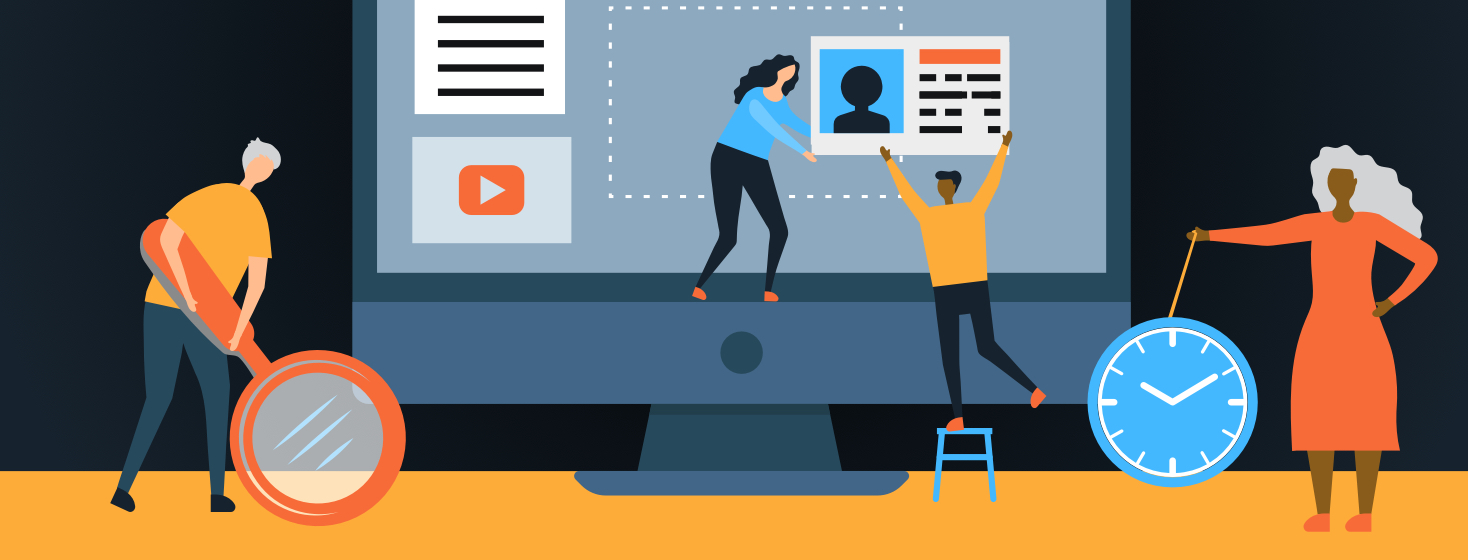Expect, Plan, and Prepare: Plan for the Worst
Let’s define the worst: With age-related macular degeneration (AMD) and no other eye disorder, you could lose all or most of your central vision. But how often does that happen? According to VisionAware, even though 10-15% of people with AMD have the wet type, 90% of vision loss stems from it.1
Why does vision loss occur from wet AMD?
- Wet AMD was not diagnosed early
- Some people don’t go to an eye specialist as soon as their vision changes
- When left untreated, the bleeding that is below the macula worsens and damages the cells of the eye including the photoreceptors that give us light.
- Treatment with injections of anti-VEGF medication is not started early and not continued as needed.
- Not everyone responds the same with anti-VEGF injections. Some people cannot be helped with them.1
Educate yourself on resources available
The biggest factor in planning is to educate yourself. Start here.
Financial resources
What resources are available to help with income and expenses if you need it?
- Do you want to continue to work? There are state & federal programs to help adapt a person’s work environment with low vision aids and training. Do an Internet search with the words ‘vision rehabilitation’ with the name of your state.
- What if you can’t continue to work – what can you do that would help financially? Some people with visual impairments can qualify for Social Security Disability Insurance (SSDI) or Supplemental Security Income (SSI). This webpage ‘Vision Loss and Social Security Disability’ will help.
Household safety tips
What would you need to do to keep your home safe so you can live independently? There are many great tips on the Internet on this topic. Here’s a page on the MacularDegeneration.net site to get you started. You can also check out this article on ‘Household Organization.’
Transportation resources
Are you concerned that you’ll have to stop driving? Besides services from Uber and Lyft, there are shared rides and volunteers who provide rides for people who need them. A great source of that information is the website ‘Rides in Sight.’ I recommend you take a look at it before you need it.
Ask questions of people who have learned how to live with a visual impairment. Social media and this site are great places to ask those questions.
Take care of your overall health
Take care of your physical and emotional health. You will be doing this not only to manage the macular degeneration and hopefully slow down the progression but also so that you have the physical and emotional strength to make the needed changes.
Friendship and support
Reach out to those around you to make sure you have a good social network. I know some of you live alone, and some of you live in rural areas. Look to churches, senior centers, and other sources of friendship and support. Do an Internet search with the name of your town and ‘groups.’
Technology can help
How can technology help you? It doesn’t mean you have to become a ‘techie’ as in someone who knows all the latest technology. I’ll be writing more about technology, but I recommend that you explore the accessibility features of your smartphone and/or tablet.
If you love to read, learn to love audiobooks! That may sound silly, but some people have a hard time adapting to stories told by audio. Once you do, though, you’ll find it’s as enjoyable if not more than just looking at words on a page.
Other vision loss resources
There are organizations that help provide information and referrals for all kinds of needs. This webpage will help those in the US and Canada find services for:
- Advocacy
- Audio, braille or large print books,
- Community outreach and support groups
- Computer/assistive technology training and training in the use of low vision devices
- Consumer organizations
- Counseling
- Daily living skills/independent living skills training
- Employment/job training
- Information and referral
- Health-related services, low vision services, and independent service providers
- Radio reading services and telephone or personal reader services
- Recreation services
- Transportation services
- Travel and Orientation & Mobility (O&M) training
Adapting
Those who refuse to accept that there are new and better ways of doing things with visual impairment are the ones whose lives never get back to where they were. In the previous page, I gave examples of people who have done just that: adapt!
“Success and happiness lie in you. Resolve to keep happy and your joy and you shall form an invincible host against difficulties.” Helen Keller

Join the conversation